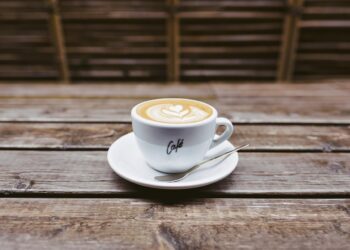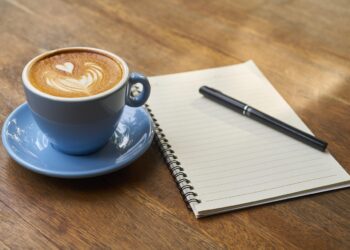Coffee Basics: A Beginner’s Guide to Brewing the Perfect Cup
Are you a coffee lover looking to enhance your brewing skills? Whether you’re a novice stepping into the aromatic world of coffee or an enthusiast looking to refine your craft, understanding the basics of brewing coffee can elevate your experience. This guide provides a comprehensive overview, from selecting the right beans to mastering various brewing methods, ensuring that every cup of coffee you make is nothing short of perfect.
Choosing the Right Coffee Beans
1. Understand Bean Types
Coffee beans come primarily in two varieties: Arabica and Robusta. Arabica beans are more popular, known for their sweet, soft taste and higher acidity. Robusta beans, on the other hand, are more robust and bitter, often with a higher caffeine content. For beginners, Arabica beans are generally recommended due to their wide range of flavors and smoother profile.
2. Consider the Origin
The origin of coffee beans has a significant impact on their flavor profile. Beans from Latin America generally offer a light, crisp acidity with balanced flavors. African beans are often more exotic, featuring floral and fruity notes. Meanwhile, Asian coffee beans typically present a heavier body with darker, earthier tones.
3. Roast Levels
Roasting transforms green coffee beans into the aromatic, brown beans we all recognize. Roast levels — ranging from light to dark — affect the taste of the coffee. Light roasts retain more of the original bean’s flavor characteristics, while dark roasts have a more pronounced bitterness and can mask specific origin flavors with smokiness.
Essential Equipment for Brewing at Home
1. Coffee Grinder
Investing in a good coffee grinder is crucial for flavorful coffee. Freshly ground coffee ensures maximum flavor, as ground coffee can lose its aroma and taste over time when exposed. Blade grinders are affordable, but burr grinders offer more uniformity and control, which is vital for the consistency of the brew.
2. Brewing Devices
Different brewing devices can produce varying taste profiles. Some popular options include:
- French Press: Known for its rich and full-bodied output.
- Drip Coffee Maker: Convenient and reliable for day-to-day use.
- Espresso Machine: Ideal for those who appreciate a strong, concentrated coffee flavor.
- Aeropress: Versatile and great for experimenting with brewing times and techniques.
Choosing the right device depends on your personal preferences and the flavor profile you aim to achieve.
3. Filters
The choice between paper and metal filters affects the body and clarity of your coffee. Paper filters result in a cleaner, brighter cup, while metal filters allow more oils to pass through, enhancing the richness of the brew.
The Perfect Brewing Method
1. Grinding the Coffee
The grind size should match your brewing method to extract the right flavors. For instance, espresso requires a fine grind, while French Press needs a coarser grind. Consistent grind size leads to more balanced extraction and better tasting coffee.
2. Water Quality and Temperature
The quality of water is critical since coffee is over 98% water. Use filtered or bottled water if tap water is hard or chlorinated. The ideal brewing temperature is around 195°F to 205°F (90°C to 96°C). Water that is too hot will over-extract, making the coffee bitter, and too cold water will under-extract, making it flat and weak.
3. Brewing Time
Brewing time is significant and varies with different methods. For example, espresso takes about 20-30 seconds, while a French Press might take 4 minutes. Proper timing ensures that the flavors are extracted just right — not too weak, not too strong.
Common Questions Answered
1. How much coffee do I use?
A good starting point is a ratio of about 1:15 coffee to water for most brewing methods, which you can adjust according to taste.
2. How can I keep my coffee hot?
The best way is by using a thermal carafe. Reheating coffee can make it bitter.
3. How often should I clean my coffee maker?
You should clean your coffee maker at least once a month to prevent oil buildup, which can affect the taste of your coffee. Descale regularly to avoid mineral buildup.
Summary
Mastering the art of coffee brewing is a rewarding experience that brings a new level of enjoyment to your daily cup. Remember, perfecting coffee is an art that involves patience, precision, and passion. By choosing the right beans, understanding the equipment, and refining your brewing technique, you’ll be well on your way to making exceptional coffee every time.
Practice, patience, and experimentation are key. Every change in bean, grind size, water temperature, or brewing method can lead to a new and exciting coffee experience. Enjoy your brewing journey!





